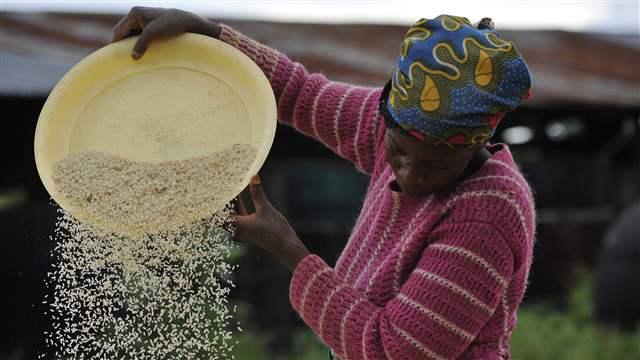Today, Africa possesses some of the fastest growing economies of the world. With above 5% GDP growth on the average, Ghana, Tanzania, Ethiopia, and Mozambique amongst others present huge prospects for the African continent. However, taking account of Africa's leadership history and lack of articulate policies that characterized our governance, one will be left wondering if there's any hope for meaningful developments reflecting such prospects. Brookings, an American independent organization known for producing innovative policy solutions across the globe, had on January 9th organized a conference on what should be Africa's top priorities in 2013. Among its array of discussants were Mwangi S. Kimeni, who's the director, Africa Growth Initiative and also a senior fellow Global Economy and Development. To him, all that Africa needs is good leadership. For Steve Radalet, a distinguished Professor in the Practice of Development, "Africa needs investment." Jeffrey Sachs, who's the Director, Earth Initiative, Columbia University said "Information technology has been a transformative development for Africa." For Laura Seay, an assistant Professor of Political science, Morehouse college "Education is the key to Africa's development." So well that I couldn't have agreed more with the above priorities, the big question remains, what are African leaders doing to bring the suggested priorities into implementable realities?
Development is a manifestation of the workings of a complex chain of interlacing systems, of which the components are essential parts. For Africa, sadly though, we are long way off the mark in the development of these systems. Development appears to occur when a number of necessary components are put in place and the equivalent checks have been removed. Unfortunately, we have proved too refractory to almost all interventions. Nothing happens because too many links in the control systems have yet to be put in order. African leaders, though figuratively and literally present in much of such conferences, active lips services never translate into real actions. My biggest fear is that all the good ideas offered at the conference are in danger of becoming naught. It is a well documented fact that most African leaders and failure are too synonymous to be separated, while priority misplacement is an addendum they'd be glad to accept. For me, the key limits to creating a more complex framework within which 'everything works' seems limited more by internal institutions. Political stability, constructive economic change and overall social cohesion were aspects never given serious attention by most African lords. Taken together, these factors create a system which gives rise to massive developments. In essence, a complex system – the African society – is only able to become established when all the parts that are necessary to its adaptability are firmly fixed. When they're not, then local systems of governance and the scope of individual aspirations are limited to relatively simple and established horizons. This simple logic is what most African monsters failed to agree with. Specific pathologies such as pervasive influence of corruption – which is now becoming an emblem to most African leaders, and excessive hunger for power are in combination failing the continent in its entirety. A certain UNDP index shows malignant figures any sane brain should be worry of. According to the indices, over 1 billion people inhabit the African continent, but around 85% or more live on less than US$1 per day across its nations. About same number lack access to safe water and twice as much live without adequate education, making them vulnerable to all sorts of tropical diseases. Around 46 million children live on the streets and about same number, in settled accommodations, have no access to schooling. There are about 50 million child labourers at work, often under extreme conditions. Some over 100,000 girls are used in prostitution and 167,000 children are currently fighting as soldiers in war torn nations, while 6 million got injured and or crippled in armed conflicts, ethno-religious crisis and many of such mini war adventures. How many more have we lost to maternal and infant mortality? How many more to natural, even when avoidable, and man made disasters? With such indices, I'd be right to say Africans are living at ground zero for the worst pandemic of modern times.
Paradoxically, Africa has grown less rapidly than its population since 1960's and thus its citizens are individually poorer than they potentially ought to be. Asia, by contrast, was of a similar wealth to Africa in not too long ages. But despite its huge resources, Africa had failed to grow its potentials, capabilities and extent its options. Asia did succeed in doing so. This shows a pervasive influence of internal institutions and social organizations still lacking within the African set up. Much as the African continent have to stop relying on foreign aid and encourage free trade, African leaders must ensure that innovative policies go beyond mere conferences and theoretical documents. Our internal institutions must be checked, fixed and perfected into multi driven forces geared towards growth and development albeit, reducing transaction costs, improving consumers market, discovering new resources, diversifying the economy, good governance and accepting responsibilities. Political stability much as boundary equilibrium must be ensured for an African dream the 'outsiders' have been wishing us to achieve.
Abubakar A. Musa makes an inspiring debut on the Voice of Liberty Africa (VOLA) project

